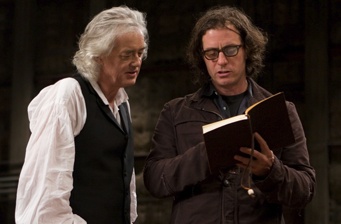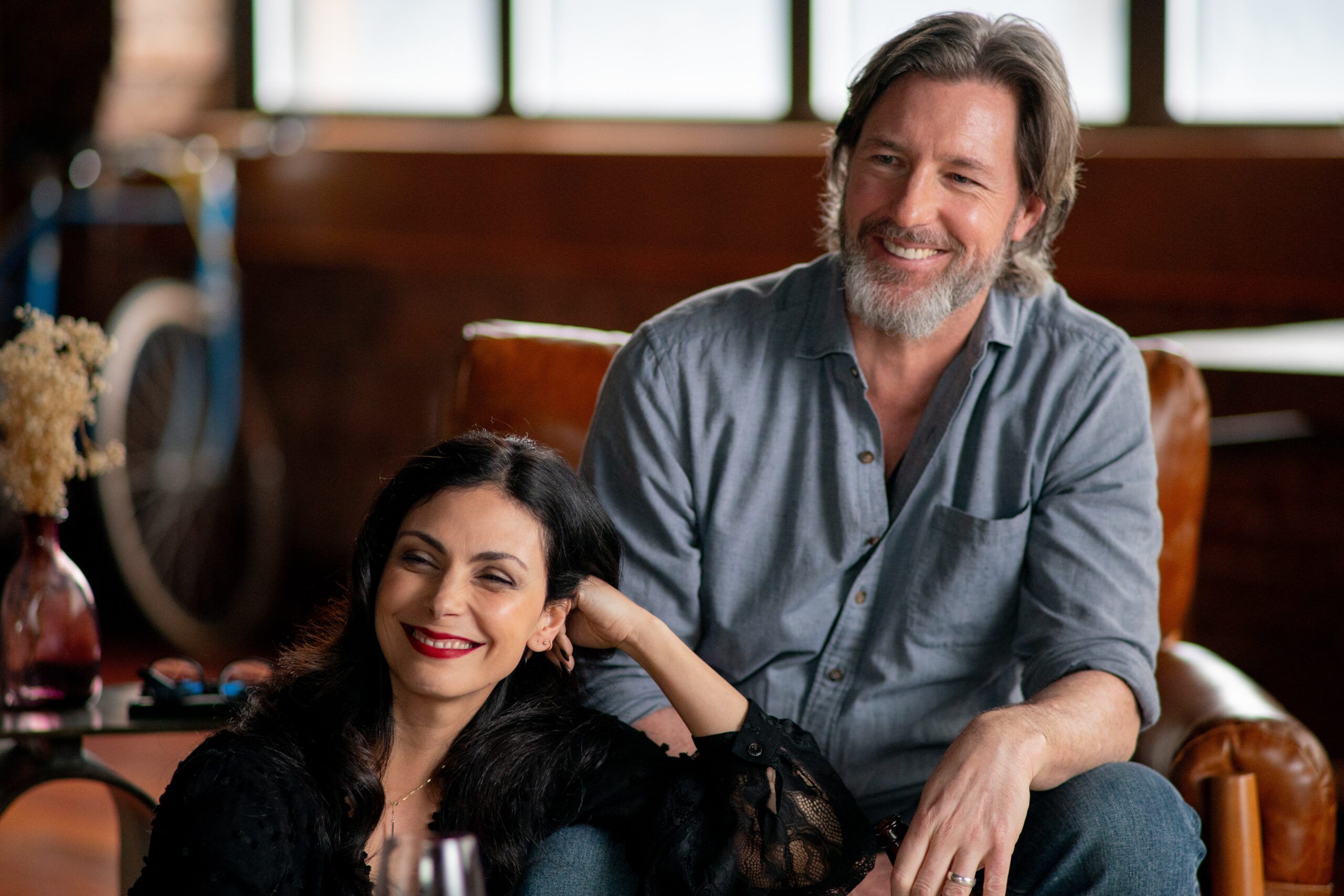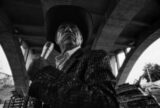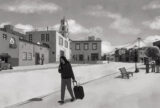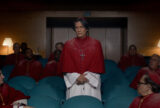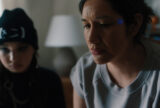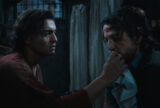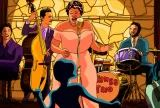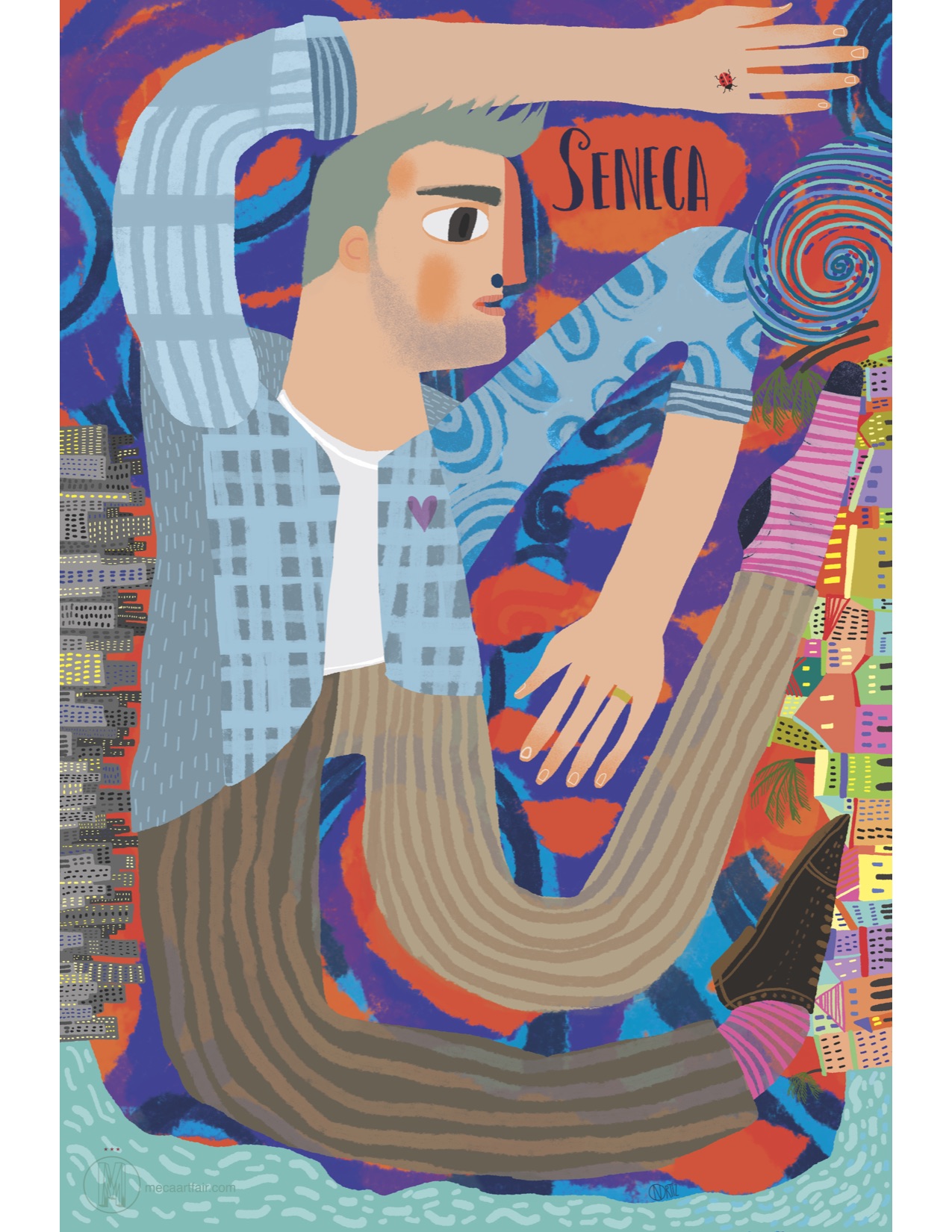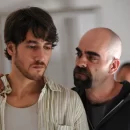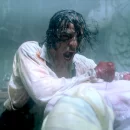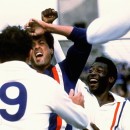08.11.2009 | By Alex Florez |

Recently I had a chance to sit down with Oscar award winning filmmaker Davis Guggenheim (An Inconvenient Truth) in New York to talk about his latest documentary It Might Get Loud. The film tells the personal stories, in their own words, of three generations of electric guitar virtuosos – The Edge (U2), Jimmy Page (Led Zeppelin), and Jack White (The White Stripes). It reveals how each developed his unique sound and style of playing favorite instruments, guitars both found and invented.
We spoke about documentary filmmaking, whether the non-fans will enjoy the movie and his arguable decision to include Jack White in the film. Here in full, the Q & A:
AF: First of all, congratulations on the film, I thoroughly enjoyed it! However, I almost have to say that with an asterisk at the end. That’s because I’m a fan of all three musicians in the film. But I also have a lot of friends that are ‘U2 haters’ who say things like “The Edge is nothing but pedals and effects…he’s not a true guitarist!â€
How much do you worry about getting the non fans out to watch the film?
DG: Well the thing about the movie is that it’s kind of universal. Some fans may like this band more than that band but everyone responds to these guys as artists. We all grew up to this music and this movie shows you how they made it and why they made it and the people behind it. So I find that for non guitarists, people will like it even more because they connect with the artistry behind it. The super guitar geeks want to look at the chords being played but this is not about that, this about how these kids from different times, from different generations, took their obsessions and became rock stars.
AF:Â So is it fair to say that these bands will get some new fans out of the movie?
DG: Oh yeah. It already has. My son bought a mandolin and now he’s playing ‘The Battle of Evermore’. Years later, Led Zeppelin still moves people. U2 still moves people. All this music is still cutting edge.
AF: I want to talk about your selection process. For the film you chose three guitar virtuosos from three different generations. While it’s difficult to argue with the contributions that both Jimmy Page and The Edge have made in their respective eras, I think Jack White is a curious and somewhat debatable choice to represent our time. Perhaps because we’re not far enough removed from the era.
Did you ever consider someone else instead of Jack White? For instance, Tom Morello from Rage Against the Machine. Or did you just need a singer? Was this your original wish list of guitarists?

DG: We knew we weren’t going to get everybody. In fact, if we tried to make a movie about everybody it would be too diluted. You’d spend three minutes on Tom Morello, three minutes on Eric Clapton…We thought, why not pick 3 guys from 3 different generations? And it was important to have Jack White because he is still becoming, he’s got two new bands, and he’s also a singer, but most importantly because he represents the next innovator. He’s such an innovator. His sound is so distinct. He’s so creative. To me, he embodies what Led Zeppelin embodies: experimentation, improvisation and aggression. You could easily make a movie about Tom Morello or Eric Clapton too…I really wanted Jimi Hendrix but he wasn’t available.
AF:Â What kind of guitarists did you grow up with?
DG: I was a huge fan of U2 because my brother brought home that first album called ‘Boy’ and I was like ‘this is my music!’ It was so different and so direct and so different from the classic rock that everyone else was listening to. But it was years later that I started to realize Led Zeppelin is this really amazing band. ‘I cannot ignore Led Zeppelin.’ It was a half a generation ahead of me so I really didn’t look into it at first. But then when you hear it, you’re like ‘this is such great music, this is great musicianship and it’s the root of all the rock and roll that followed it.’ Everyone who came up after Led Zeppelin had to deal with Led Zeppelin because they were so good.
AF: Its interesting to me too. Led Zeppelin was obviously before my time but when you really fall in love with a band like U2 you eventually start to trace their roots, their musical family tree and you find out that sure enough, it was Led Zeppelin, The Clash, Patti Smith and all those bands from the 70s that influenced them so much.
DG: Yeah. You’re good. I like that. You know your stuff.
AF: A rockumentary. In my opinion, ‘It Might Get Loud’ is one of a few that genuinely deserves to be called that. A lot of films are called rockumentaries but all they really are is concert footage with a few sounds bites. Then there’s the ‘E! True Hollywood Story’ and the ‘Behind the Music’ specials. ‘It Might Get Loud’ arrives as something different and refreshing because at the end of the day it is about the relationship between the musician and his instrument.
DG: I wanted to make a different kind of music documentary. Even to call it a documentary…I guess that’s how it has to be categorized, but this is about a summit of three guys from three different generations coming together to play and I’ve never seen that before. Whereas a lot of rockumentaries end up leading towards the death of the band or a drug overdose or a girlfriend breaking up the band, this movie is about the personal journey of these guys and how they went from teenage boys to artists and how they would write their songs. I see a lot of other movies and say ‘wait you didn’t tell me anything about how they wrote and how they created. I want to know more!’
AF:Â What is the appeal of the documentary film? And do you prefer it over a traditional narrative feature?

DG: You know, I’ve done a couple of features and I’ve done a bunch of television. So I like it all. I’m really drawn to documentaries because right now at this moment, documentaries are exploding. Creatively they’re changing. Features aren’t being as experimental as documentaries are. It Might Get Loud is an experimental movie where I had a lot of creative control. I had animation in this film. I used different kinds of techniques and storytelling devices that you could never use in features. On top of that, you have all these people that you admire whose stories haven’t been told.Â
The thing that you’re desperate for when you’re telling any kind of story, whatever is, is wanting to be passionate. You want to be excited when you wake up in the morning, because if you excited that comes through in the filmmaking.Â
I get sent a bunch of scripts. Just last night I was reading a script and I cannot finish reading it because I’m so bored. I think audiences feel that same way when they see a lot of these movies. ‘Why did they even make this movie?’ These documentaries are so fun and interesting that I just keep following that.
AF: A documentary like this one doesn’t have the same urgency as some of the others like ‘An Inconvenient Truth’, or the Obama piece that you made. The ‘It needs to be said NOW’ factor. Can you talk about the differences in the approaches?
DG: That’s a very good question. We made Inconvenient Truth in 5½ months and documentaries usually take a couple of years to do. But we just felt like we had to make this movie now and the timing of it was its success. It was about capturing the moment. It Might Get Loud is very different. This is an exploratory movie about the nature of creativity.Â
I like just jumping around. I like being in the situation where I’m doing a totally different movie and saying ‘I don’t know if I’m going to be able to pull this off!’
AF: I know that the structure of most documentaries are found in post. I don’t know how much scripting you did beforehand but it was pretty neat how each story had its own take. There’s a boy in the film that shadows Jack White, which serves as a clever device for his segment. The Edge going back to his old high school brings this nostalgic effect. Then, Jimmy Page’s visit to the legendary Led Zeppelin house is almost mythological. is that something that was at all premeditated, to have these different approaches for all of them?
DG: Documentaries have a script that you are kind of writing in your head as you’re editing them, and when you finish the movie you finish the script. Whereas if you’re doing a feature you finish your script, then start shooting. So its kind of the opposite right? But I’ve learned with documentaries not to script stuff, to let the characters take me where I should go. So with Jimmy Page, we just sat in a room for two days and just talked. I asked him questions about this song and that song, and his songwriting.  Out of those interviews, an early map came out of the places where we might go shoot. Those places then led to more clues. We would edit some more, and that led us to even more clues.Â
AF: Very different from ‘An Inconvenient Truth’, where you had Al Gore’s slide show in essence, guiding you.
DG: Yes, the slideshow was about 2/3 of the movie but the other part was telling his story which hadn’t been really done properly. So we were following him around debating whether we should go here or whether we go there, still trying to discover those moments as we went. I wasn’t even sure that you could intercut these very personal reflective moments inside this slideshow. But it was very organic. Then, we were constantly animating his slideshow and changing it and cutting it and moving it around. It’s all an evolution. His slideshow was almost twice as long than it was in the movie, so we had to kind of shape that. By the time we finished the movie, we had our script.Â
AF:Â Thanks again, Davis. we wish you the best of luck with the film.
DG: Thank you. What a nice interview. I enjoyed it!Â

